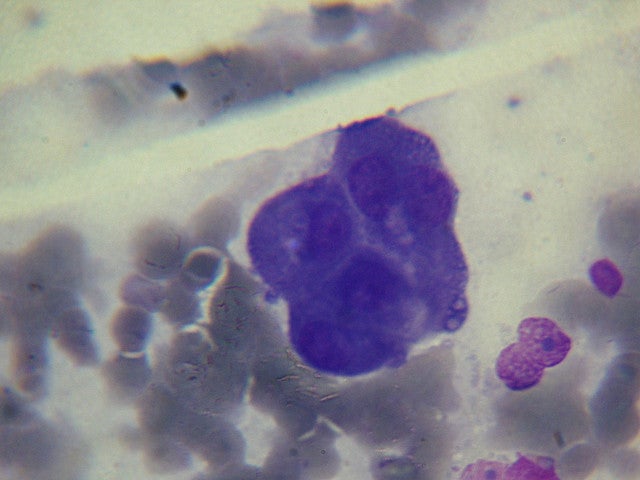Agus is a
huge proponent of treating cancer less like a disease, and more like a
weather system, which can be mapped and hopefully controlled.
"I see it
almost going towards things like climate-modeling," says Agus. "A
climate modeler goes and looks at the shape of the clouds, and looks
what's going on wind-wise and the temperature and so on, and then makes
predictions. I want to be the same, where I can look at multiple
variables, whether it be the sequence, what the proteins are, what the
host is doing [and] the shape of the cancer. All of those things
together, you can start to make accurate modeling and predictions."
It requires
thinking more like an engineer — and in fact, Agus is working with
physicists and engineers on this, including string theory pioneer Murray
Gell-Mann and supercomputer pioneer W. Daniel Hillis.

Sometimes
instead of only attacking the tumor directly, the best approach includes
also making changes in the host. For example, says Agus, doctors have
discovered that they can give breast cancer patients "a drug that builds
bone, an osteoporosis drug, and it will reduce the recurrence by 30 to
40 percent. So the notion is, if you change the soil, the seed doesn't
grow as well." Image via Dione Silva.
Sartor says
that instead of attacking cancer cells, you can pursue treatments that
"are targeted to the tumor microenvironment," such as "anti-angiogenesis
compounds, that bind to blood vessels, which are common to a number of
tumors." Sartor calls this "stroma-targeted therapy," and says it could
target many types of tumors by cutting off their blood supply.
Given the
huge genetic diversity even within individual tumors, the approach of
targeting the stroma, or connective tissue, has a certain advantage.
"The stroma is typically more stable, and if you can effectively target a
tumor's stroma, you don't have the same mutation machine that exists in
cancer cells," Sartor says. He calls cancer cells "Darwinian machines,"
because if you attack one type of cell, you're actually selecting for
treatment-resistant cells. This is one way around that problem.
Agus would
also like to see more focus on simple prevention methods — like, if you
take an aspirin every day for 10 years, it reduces your chances of dying
of cancer by double digits. Not to mention simple changes in people's
behavior.
"Galileo
would go every night and map all the stars in the sky, and after four
months he could tell you where every star was. But he didn't know what a
star was," says Agus. "We may not quite understand what cancer is, but
our job is to control it. It's a little bit different parameters.
No comments:
Post a Comment